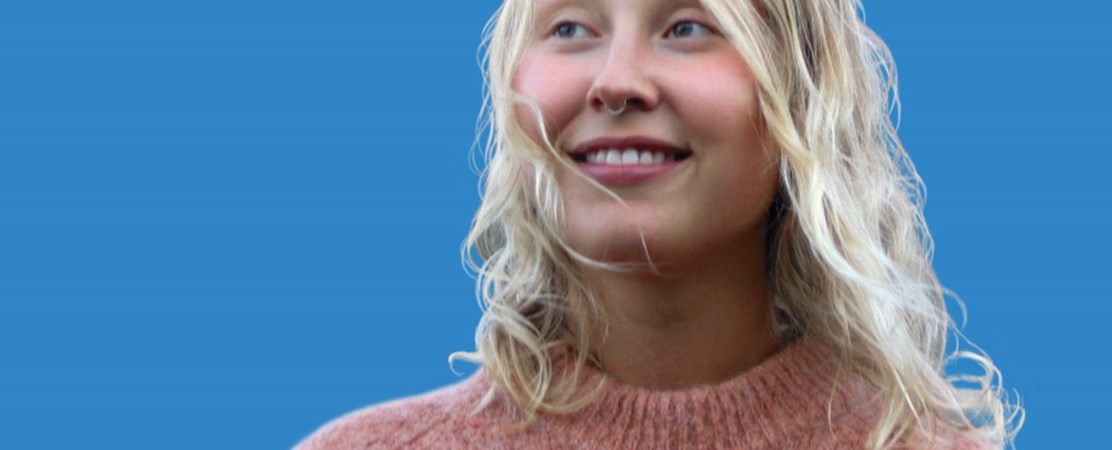Student story: Anna-Katri Kulmala

The importance of dialogue in Arctic issues can’t be overestimated, as the problems and solutions have global consequences, and they have the power to sustain or destroy entire cultures and landscapes. Often decisions that are significant to the region’s future are made far away from the Arctic, with economic or other short-sighted interests as a priority.
Youth and indigenous peoples are not enough involved in these decision-making processes. They are often heard but not listened to. In the Arctic, physical and social isolation, and lack of information, resources and communication between regions make it challenging for people to unite, get their voices heard and make a change. Times are tough, and instead of feeling paralyzed or excluded, the youth of the Arctic should be engaged and supported. After all, they are the future leaders of the region.
Finding Agency
I personally started to feel a burning urge to change the world during my university studies. I felt a strong pull toward Arctic issues as a Finnish citizen, but I wasn’t sure what I could do, as I didn’t live in the Arctic parts of Finland. I wasn’t sure what to say and where for it to have any positive impact. What I learnt though was that my need wasn’t so much to bring my views to the front – I didn’t feel legitimate to do that – but more to understand why the region is so important and what the dynamics are in the decision-making processes. Why did making a change feel so hard? Why was there a lot of talk but little action?
In 2018 I had the opportunity as a member of WWF Youth to participate in the Arctic Youth Summit held in Rovaniemi, Finland. Over ten days, youth from the circumpolar and Arctic Council observer countries discussed Arctic issues and formed a declaration for the Arctic Council ministerial meeting happening simultaneously in Rovaniemi.
I was blown away. Here was this diverse group of people all the way from India to Greenland who shared a passion for making a change in the Arctic. They came together, shared, wrote a declaration and absolutely rocked at the biodiversity conference as they handed it out to the ministers. The process touched me deeply, and I was left with two thoughts after the summit: I wanted to be a part of the community and the dialogue, and I wanted to learn what made this form of collaboration so impactful.
Connecting and Collaborating
I had never really had the chance to deeply engage with citizens of the Arctic before the summit, let alone hear stories of their relationship to the land or about the challenges climate change is causing in their areas. Sharing experiences, world views, knowledge systems, fears and hopes with the youth at the summit was incredibly uniting and empowering. We all came from such different regions and cultures but shared the same fire to change destructive and unjust structures. The challenges in our homes were surprisingly similar as well.
The things I learnt were so powerful because of their experienced nature. It’s very different to interact with something than to read about it. We benefit and grow hugely when we connect with people outside of our bubbles and listen to even the most opposite perspectives with an open heart. We need to mix things up – bring youth, other age groups, politicians, corporate chiefs and environmentalists to the same table with equal and genuine attention. Empathy is an universal superpower and we need it to reach our goals and grow. The biggest challenges of our time obey no borders and cannot be solved within them. By collaborating and combining the strengths of different knowledge systems, such as western science and traditional knowledge, we have a more holistic set for long-lasting problem solving. The right to be heard, to participate and to care is universal, and diversity a strength.
Arctic Youth Network
I didn’t know it back then, but many of these passionate people at the summit would become my friends and colleagues in the Arctic Youth Network (AYN), a youth-founded and youth-led non-profit organization connecting and supporting youth making change in the Arctic. My journey with AYN started from Rovaniemi in 2018, and it has been an amazing community during my search for agency. It has taken me to the Arctic to learn about local
environmental issues in the field. I have ended up in conferences, panel discussions and summits. I got to visit Unalaska, Alaska and live with the local Qawalangin Tribe through a diplomatic exchange to learn about their culture and environmental challenges. It has also allowed me to pursue a life-long dream of producing a documentary film series in the Arctic.
This journey has made me feel like I can get my voice heard, I can make a change and that we are all one. That has been a humbling, life-changing experience that I am deeply grateful for. The uncertainty of the future and everything that is happening around us, from the urgent COVID-19 pandemic to the underlying biodiversity loss and other environmental crises, can be a heavy burden and too big of a challenge to tackle alone. Youth globally have already gotten more united and demand action from politicians and companies, and I want to encourage all youth interested in Arctic issues to get engaged, share and join the AYN or other communities connecting individuals in the Arctic. We truly are stronger together.
If the youth are not just heard but also listened to – we will have action and not just talk. We will change the world.
